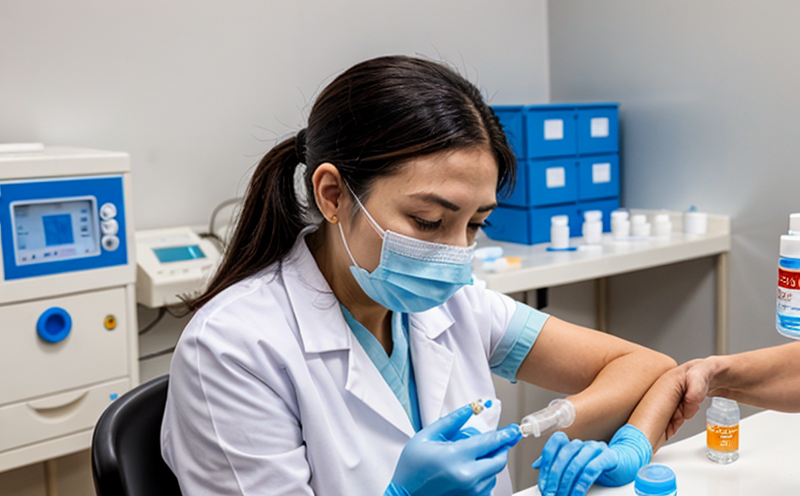ICH Q3C Residual Solvent Testing of Vaccines
The International Conference on Harmonisation (ICH) guideline Q3C provides critical parameters and acceptance criteria for the testing of residual solvents in pharmaceuticals, including vaccines. This service ensures that vaccines meet stringent regulatory standards to ensure their safety and efficacy.
Vaccines are complex biologics developed through intricate processes involving various solvents during manufacturing stages. These solvents must be removed or controlled to prevent adverse effects on the vaccine's stability, potency, and purity. The ICH Q3C guideline provides a framework for identifying and quantifying residual solvents in vaccines to ensure they are safe for human use.
The testing process involves several steps:
- Sample Preparation: Samples of the vaccine formulation undergo thorough preparation, including extraction, purification, and concentration. This step ensures that only solvent residues remain for analysis.
- Instrumentation: High-performance liquid chromatography (HPLC) coupled with mass spectrometry (MS) is commonly used to identify and quantify residual solvents. Chromatographic separation followed by MS detection allows for precise identification of even trace amounts of solvents.
- Safety Considerations: The test must adhere strictly to international standards, such as ISO 18311 and ICH Q3C(R5). These guidelines ensure that the testing process is consistent with global regulatory expectations.
The results of residual solvent testing are critical for vaccine manufacturers to demonstrate compliance with regulatory requirements. Compliance ensures that vaccines do not contain harmful levels of solvents, which could compromise their safety and efficacy.
Customer Impact and Satisfaction: By adhering to ICH Q3C, pharmaceutical companies can ensure the safety and quality of their vaccines. This service directly impacts customer satisfaction by providing accurate and reliable data that supports regulatory compliance.
- Enhanced Reputation: Compliance with international standards enhances a company's reputation in the global market, leading to increased trust from regulators and customers.
- Avoidance of Regulatory Issues: Non-compliance can lead to recalls, fines, or delays. Our service ensures that vaccines meet all regulatory requirements, minimizing these risks.
- Improved Product Quality: By identifying and controlling residual solvents, we ensure the highest quality of vaccine production, leading to more effective and safer products.
Use Cases and Application Examples:
- Vaccine Stability Studies: During stability studies, residual solvent testing is crucial to monitor changes in the vaccine's composition over time. This helps ensure that vaccines remain stable under various storage conditions.
- Batch Release Testing: Each batch of a vaccine undergoes rigorous testing, including residual solvent analysis, before release to market. Our service ensures that each batch meets stringent quality standards.
- New Drug Application (NDA) Support: During the NDA process, regulatory authorities require comprehensive data on residual solvents in vaccines. Our service provides this essential information, supporting a successful application.
The ICH Q3C Residual Solvent Testing of Vaccines is a critical component of vaccine development and manufacturing. It ensures that vaccines are safe, effective, and compliant with global regulatory standards. Our dedicated team of professionals uses state-of-the-art instrumentation and adheres strictly to international guidelines to provide accurate and reliable test results.
Frequently Asked Questions:





